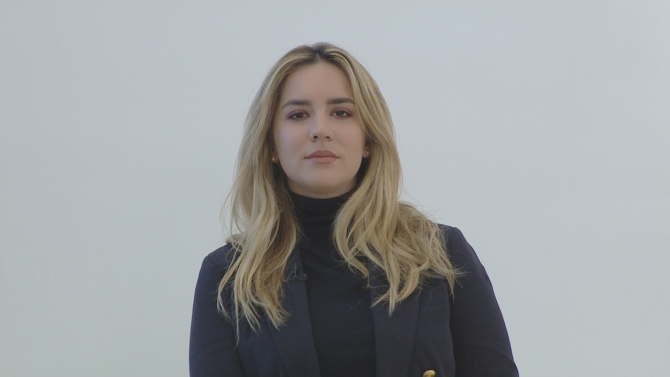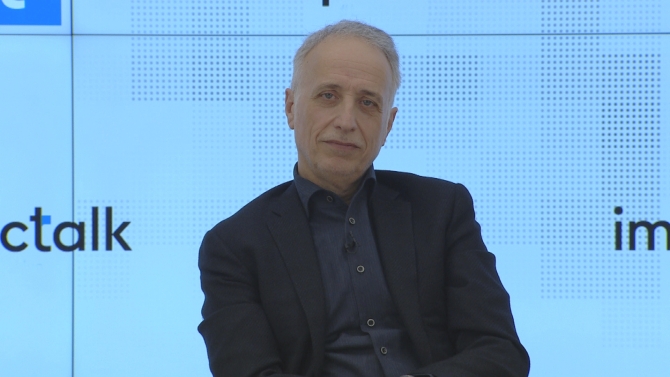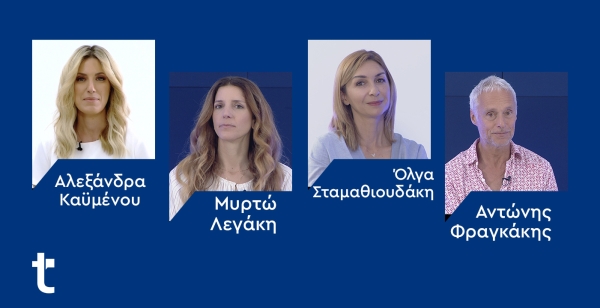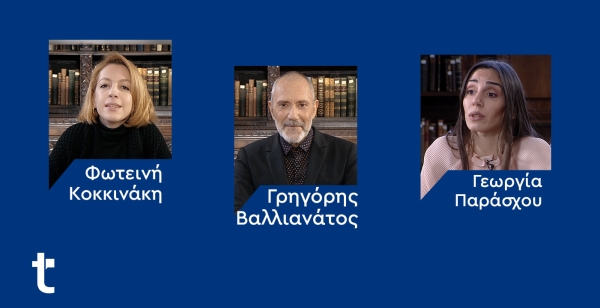There has been much talk lately about the human microbiome and its crucial role in the health of all of us.
What is the human microbiome, and why does it concern us all?
Why is it essential for each of us to know our microbiome? What does it say about us and our health?
Moderator
Iliana Magra, Journalist
Experts
Georgia Gioula, Professor of Medical Biopathology-Microbiology, Microbiology Laboratory, Medical Department, AUTH
Spyros Gerou, Biopathologist, Scientific Director of the Biopathological Diagnostic and Research Clinics "Analysis Medicine SA"
There has been much talk lately about the human microbiome and its crucial role in the health of all of us. Thanks to the rapid progress achieved in molecular biology and the developments in sequencing techniques of microbial genomes, we have better understood what we live with from the first moment of our birth, and perhaps before that, and which constitutes our normal flora. We also managed to dispel the myth that bacteria threaten our health and demystify the protection of our bodies by constant cleaning and disinfection.
- What is the human microbiome, and why does it concern us all?
- Why is it essential for each of us to know our microbiome? What does it say about us and our health?
- How does our symbiosis with 3 million microbes begin and evolve?
- Can knowledge of our microbiome act as a preventive measure against disease?
- Given that the microbiome is as unique as our DNA, can knowledge of it be used in fields other than medicine?
- In which diseases/conditions is the study of the microbiome crucial?
- Can each of us know our microbiome?
- What tests are required, and how can we use the results for better health and life?
- Can we improve our microbiome? In what ways?

Iliana Magra is a journalist with the leading Greek daily newspaper, "Kathimerini,” for which she has covered a wide variety of stories, which include female and child abuse, the pandemic, the Kolonos case, the Afrogreeks of Xanthi, and the war in Ukraine. At the same time, she broke the story of what was allegedly happening in Kivotos tou Kosmou (Ark of the World) and was the sole Greek journalist that was part of Pope Francis' mission in Cyprus and Greece.
Previously, and up to her resignation in 2020, she was reporting on international stories for The New York Times from the paper's London bureau, where she was a staff journalist for four years. She has also written for the British newspapers The Sunday Times and The Financial Times.

Ms. Georgia Gioula is a Medical Biopathologist, Professor of Medical Biopathology-Microbiology at the Microbiology Laboratory of the Department of Medicine at the Aristotle University of Thessaloniki.
She is scientifically responsible for the National Influenza and Respiratory Virus Reference Center of Northern Greece, officially recognized by the World Health Organization, an ECDC training center for the above viruses. In addition, she is the scientific manager of the Hepatology Laboratory, the 2nd Pathology Clinic of the University of Athens, GNNTH "Ippokrateio."
Ms. Gioula is Vice-President of the Hellenic Virological Society and Secretary General of the Board of Directors of the Society of Medical Biopathology of Northern Greece. At the same time, it is a member of the Global Influenza Surveillance Network - GISN.
He has been retrained on diagnosing respiratory viruses at the Erasmus Medical Center ROTTERDAM (Professor: Ab Osterhaus).
In the last decade, he has studied the human microbiome in the context of research studies and programs, resulting in many international publications.
She is scientifically responsible for 9 Research Programs and is an invited speaker at more than 100 Greek and international conferences.
She has more than 90 full publications in international journals regarding her writing and editorial work. In addition, she has participated both in writing chapters in scientific books and editing their publication.

Born in Kastoria in 1964.
Married, with two daughters.
In 1989 he graduated from the Military Medical School of the Aristotle University of Thessaloniki. In 1999 he received the specialty of Biopathologist - Microbiologist from the Agios Pavlos Hospital of Thessaloniki.
He worked and developed into the Director of the Microbiological Clinic of Military Hospital "424" from where he left in 2008.
In 1996 he participated in establishing the first biopathological research laboratory, "analysis," in which he became the scientific manager from 2004 until today.
In 2003-2004 he followed postgraduate studies in immunology at the School of Medicine of the Aristotle University of Thessaloniki. In 2009 he completed his doctoral thesis on the subject: Molecular Serology study of the spread of Lyme disease in Macedonia and Thrace.
The achievements in the research field are reflected in numerous publications in the Greek and international literature.




















































